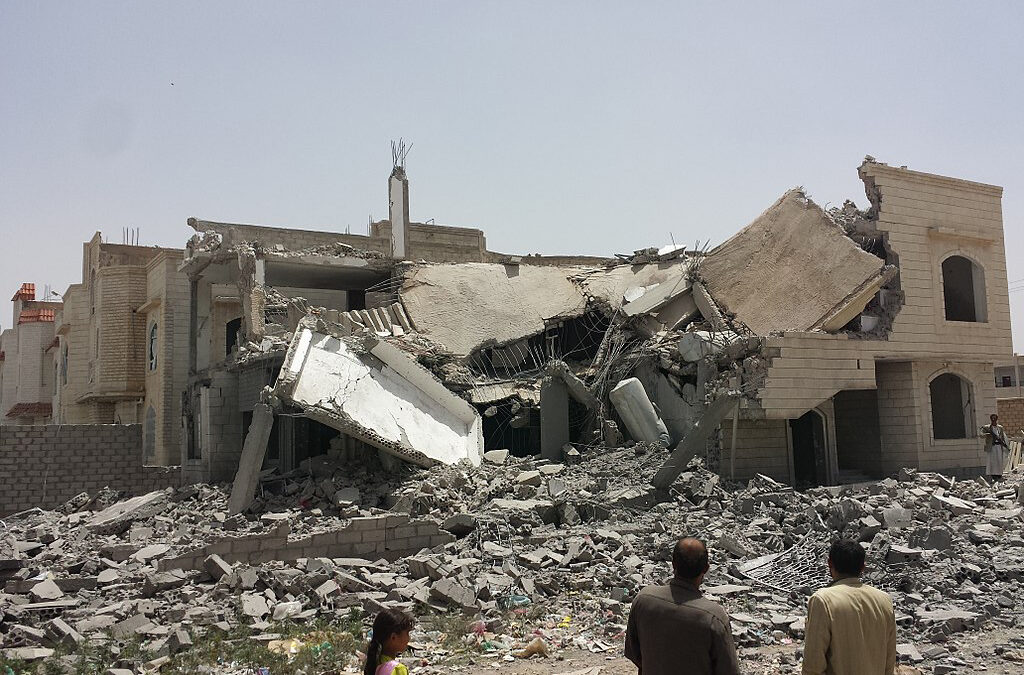
Jul 24, 2018 | Advocacy, Analysis briefs, News
In a briefing paper published today, the ICJ called on the parties to the conflict in Yemen to take immediate and effective measures to ensure the protection of the civilian population, including against human rights abuses and international humanitarian law violations.
Serious violations of international humanitarian law committed in Yemen include direct and indiscriminate attacks against civilians and the impediment of access to humanitarian relief of the civilian population.
Gross human rights violations and abuses include widespread instances of arbitrary arrest and detention, torture and ill-treatment, and enforced disappearances.
The ICJ has called for persons responsible for such violations to be held to account.
“All parties to the conflict in Yemen have acted in blatant disregard of the most basic rules of international humanitarian law and human rights law,” said Said Benarbia, ICJ MENA Director.
“The top priority is to end these violations and in particular to protect the civilian population,” he added.
In its briefing paper, the ICJ analyses international law violations committed in the conduct of hostilities and against persons deprived of their liberty.
The Saudi Arabia-led coalition and the Houthis are allegedly responsible for direct, indiscriminate or disproportionate attacks against civilians and civilian objects, including local markets, food storage sites, water installations and medical facilities.
The United Arab Emirates, the internationally recognized government of Yemen and the Houthis have allegedly engaged in arbitrary arrest and detention, torture and ill-treatment, and enforced disappearances.
The ICJ briefing paper also examines the potential legal implications of the blockade imposed by the Saudi Arabia-led coalition on Yemen and the sieges laid by the Houthis against several towns and localities, which impede the civilian population to access humanitarian relief.
The ICJ briefing paper further assesses the potential responsibility of third States for transferring arms to the parties to the conflict.
Under numerous instruments, including the Arms Trade Treaty, States are prohibited from selling arms to the parties to an armed conflict whenever a risk exists that the end-user could commit international law violations.
Arms transfers may even engage the exporting States’ international responsibility for aiding or assisting in the commission of such violations.
“Victims must have access to effective legal remedies and be provided with adequate reparation,” Benarbia said.
“The international community must state loud and clear that impunity is not an option. The Security Council should refer the situation in Yemen to the International Criminal Court and third States should consider, where feasible, the exercise of universal jurisdiction to prosecute relevant crimes under international law,” he added.
Contact
Vito Todeschini, Associate Legal Adviser, ICJ Middle East and North Africa Programme, t: +216-71-962-287; e: vito.todeschini(a)icj.org
Said Benarbia, Director of the ICJ Middle East and North Africa Programme, t: +41-22-979-3817; e: said.benarbia(a)icj.org
Yemen-War briefing-News-web story-2018-ENG (full story with background information, English, PDF)
Yemen-War impact on populations-Advocacy-Analysis Brief-2018-ENG (Analysis Brief in English, PDF)
Yemen-War briefing-News-web story-2018-ARA (full story with background information, Arabic, PDF)
Yemen-War impact on populations-Advocacy-Analysis Brief-2018-ARA (Analysis Brief in Arabic, PDF)
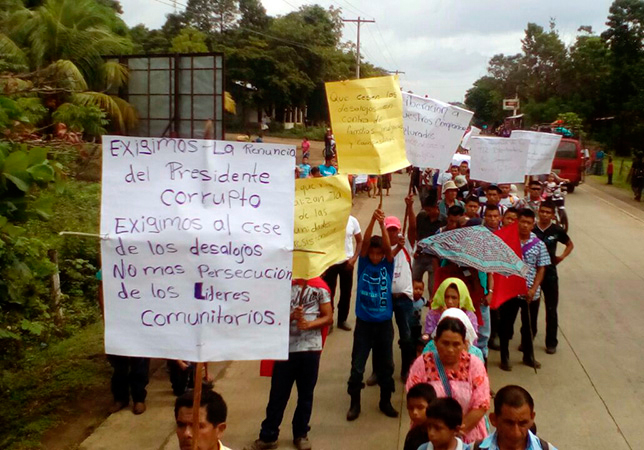
Jul 24, 2018 | News
For many years, human rights defenders in Izabal have been the victims of persecution because of their opposition to the Phoenix nickel mining project.
This project has been operated by the Guatemalan Nickel Company (CGN), formally owned by Hudbay and now owned by the Solway Group.
“The ICJ expresses its deep concern about the persecution of human rights defenders opposing to nickel mining operations that are causing serious environmental damage and irreparable harm to the Lake of Izabal.
The local communities’ peaceful resistance contrasts with the violent repression that they face,” Ramon Cadena, Director of the Central American Office of the ICJ, said today.
Ramon Cadena added: “the Guatemalan government must urgently put an end to the criminalization and persecution of community leaders, journalists and all human rights defenders in the Department of Izabal.
Internal disciplinary measures should be taken against judges who through their acts contribute to the persecution of persons exercising their legitimate rights and freedoms.
The State should provide reparations for the harm and prejudice caused to human rights defenders by the public authorities. Furthermore, the International Commission against Corruption and Impunity in Guatemala (CICIG) should fully investigate these acts.“
Eduardo Bin Poou, Vice-President of the Izabal Fishers’ Association was recently detained and falsely accused without any evidence that he had committed any crime.
Last year, on 27 May 2017, Carlos Maas Coc, a leader of the Fishers’ Association was assassinated, and another fisherman, Alfredo Maquín Cocul, was wounded and these crimes remain in impunity today.
From 18-20 July, 2018, the ICJ carried out a visit to the Department of Izabal. On 19 July, the ICJ observed the hearing when the case against Jerson Xitumul, a community journalist, was dismissed for lack of evidence of any wrongdoing, at the Court for Criminal, Narcotics and Environmental Offences in Puerto Barrios.
The ICJ then held a meeting with the Izabal Fishers’ Association and on 20 July, the ICJ interviewed the Vice President of the same Association, Eduardo Bin Poou, arbitrarily detained in the Puerto Barrios prison.
The ICJ is deeply concerned by the role that judges in the Department of Izabal have played in the criminalization of human rights defenders.
Judge Edgar Aníbal Arteaga López has often abused his office by imposing exemplary punishments against human rights defenders.
This judge has handed down arbitrary sentences against journalists, fishermen, community leaders, land rights’ defenders and all those opposed to the nickel operations or who defend community rights in the Department.
For example, because of the arbitrary actions of Judge Arteaga, the community leader, Abelardo Chub Caal, remains in detention although there is no evidence that he has committed any crime.
There are other cases including that of Maria Magdalena Cuc Choc, from the Chabilchoch community, who was detained on 17 January 2018 in Puerto Barrios.
The single Judge for Criminal Proceedings, Narcotics and Environmental Offences in Puerto Barrios, Ana Leticia Peña Ayala, despite the evidence, absolved the retired Colonel Mynor Ronaldo Padilla González (former chief of security for the CGN nickel company) of all charges and ordered his immediate liberty.
During the court case, the Judge Peña Ayala prohibited the public and journalists from entering the court room for so-called “security reasons”, so that most of the proceedings were carried out behind closed doors. With this ruling, the assassination of Adolfo Ich remains in impunity and those responsible have not been punished.
In this same case, Germán Chub was left quadriplegic and the circumstances of the attack against him have never been resolved.
In the hearing on 19 July in the case of Jerson Xitumul, without any justification, Judge Arteaga also prohibited the presence of journalists and international and national observers in the court room.
Both judges flagrantly violated the principle of public hearings established in the Guatemalan Penal Code. A formal complaint was submitted to the Auxiliary of the Human Rights Attorney of the Department of Izabal concerning the actions of Judge Arteaga on 19 July.
The ICJ has stated on a number of occasions that the Guatemalan authorities have persecuted human rights defenders by charging them with crimes of land appropriation or aggravated land appropriation.
In this way, the Guatemalan authorities seek to criminalize the legitimate right to resist, enshrined in article 45 of the Guatemalan Constitution, accusing environmental human rights defenders and others of crimes such as incitement to crime, illegal detention, threats, damages, illicit meetings and marches and other acts. In practice, the State is penalizing the legitimate exercise of the rights of expression and association.
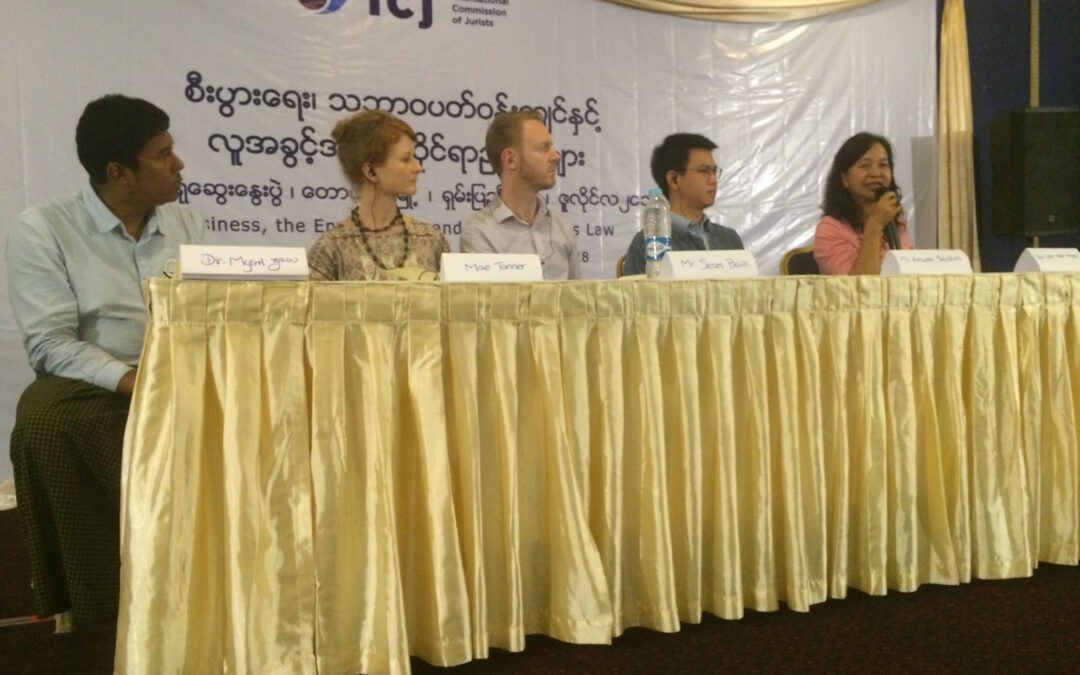
Jul 24, 2018 | Events, News
On 22 and 23 July the ICJ convened a workshop on Business, the Environment and Human Rights Law in Taunggyi, the capital of Myanmar’s Shan State.
This followed meetings between the ICJ’s legal advisers and the Shan State High Court and also with the State Advocate General on 13 July, to discuss rule of law developments.
The workshop aimed to identify ways to address the impacts of business activities on human rights and the environment, through legal advocacy including strategic litigation, and to provide a forum for cooperation and experience sharing among participants.
More than 50 lawyers, parliamentarians, human rights defenders and civil society representatives attended from Shan, Kayah and Mon states – provinces that together border Thailand, Laos and China.
An overview of the investment context was provided by Dr Myint Zaw of Paung Ku Myanmar, who also shared lessons from environmental activism in Myanmar.
As well as highlighting weaknesses in domestic law and policy, he presented concerns around lack of transparency and information sharing between the legislature and executive branches of government.
Australian lawyer and ICJ consultant Mae Tanner gave an overview of international human rights law and standards relevant to business activities and environmental protection, particularly emphasizing the obligations assumed by Myanmar in ratifying the International Covenant on Economic, Social and Cultural Rights.
She offered insights as to how UN mechanisms can be used by civil society to advance their advocacy on business and human rights in Myanmar.
Senior Advocate U Myint Thwin drew on his extensive litigation experience to share perspectives on the complex and confusing array of land laws in Myanmar and emphasized the importance of legal knowledge and training to combat corruption and achieve accountability.
The ICJ’s legal adviser Mr Sean Bain outlined the domestic laws relevant to investment and environmental protection in Myanmar and highlighted some key provisions that offer protection against human rights violations and abuses.
He noted the government’s stated aim of promoting the rule of law in Myanmar and emphasized the importance of demanding accountability, transparency and justice in this context.
Amarin Saichan, lawyer with Thai NGO EnLAW, shared experiences of pursuing strategic litigation to address unlawful and harmful business activities in Thailand, stressing the need for creativity in using the law to seek justice and accountability.
He also raised concerns around the use by government of strategic litigation against public participation in Thailand and explained how Thai lawyers are using the courts to guarantee the right protest against harmful development projects.
Participants had the opportunity to discuss how the strategies they shared could be used in the context of issues faced by their communities.
These included human rights and environmental concerns raised by energy and extractive projects, restrictions on shifting agriculture, and violations of the right to freedom of expression and assembly faced by communities who oppose state-backed developments.
They considered advocacy strategies for four case studies selected by participants from across Shan, Kayah and Mon states.
Throughout the workshop speakers and participants highlighted the importance of cooperation between civil society and lawyers, and the need to use Myanmar’s legal system more proactively as part of their broader advocacy strategies.
This workshop is part of the ICJ’s ongoing support to lawyers and civil society in Myanmar.
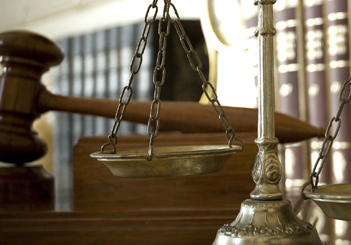
Jul 22, 2018 | News
The Supreme Court’s election of a person who is not suitable for the position of substitute judge on the Constitutional Court is deeply concerning for the sound administration of justice and the effective application of the rule of law, the ICJ said today.
Ramon Cadena, the Director of the Central American office of the ICJ added: “with this election, the SCJ has contributed to deepening the crisis in the judicial system and it will affect the little credibility that the Guatemalan people still retain in the justice system.”
The position of substitute judge on the Constitutional Court (CC) had become vacant when the former substitute judge was appointed Attorney General by the President, Jimmy Morales.
The eight judges of the SCJ who voted in favour of the substitute judge of the CC did not comply with international norms and standards on the administration of justice.
The Basic Principles on the Independence of the Judiciary state that “Persons selected for judicial office shall be individuals of integrity and ability with appropriate training or qualifications in law.”
The ICJ has been able to verify that the SCJ judges elected a person who:
- in 2010 was dismissed as Attorney General by the CC shortly after assuming office because the person was deemed not suitable;
- openly opposes the International Commission against Corruption and Impunity (ICCIG) despite the good work that the Commission undertakes to address corruption and impunity;
- in 2010, after assuming the office of Attorney General was accused of intervening in cases concerning corruption and impunity and impairing evidence in these cases.
The ICJ recalls that the CC stated that the acts carried out by Congress on 11 September 2017 were susceptible of causing “irreparable harm to the justice system”.
The ICJ considers that the election by the SCJ of the substitute judge to the CC should also be considered an act of irreparable harm to the justice system.
The ICJ therefore urges the CC to once again protect the rule of law in Guatemala.
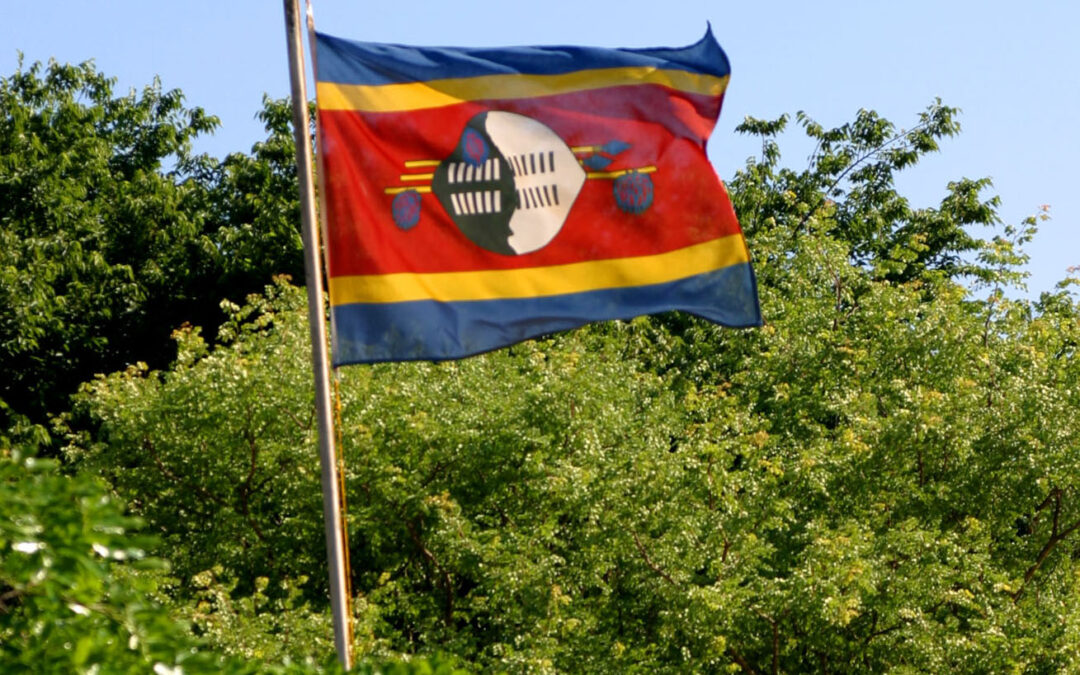
Jul 19, 2018 | News
His Majesty King Mswati III of the Kingdom of Eswatini (formerly known as the Kingdom of Swaziland) yesterday gave his royal assent to the Sexual Offences and Domestic Violence Act, a milestone in the fight against sexual and gender-based violence (SGBV) in the country.
In its May 2018 report on key challenges to achieving justice for human rights violations in Swaziland, the ICJ identified the widespread occurrence of SGBV, with discriminatory practices based on customary laws and traditional beliefs undermining equality between men and women and the access by victims of such violence to effective remedies and reparation, as well as the holding to account of perpetrators of such violence.
Eswatini’sNational Strategy to End Violence in Swaziland 2017-2022, produced by the Office of the Deputy Prime Minister in collaboration with the UN Population Fund, itself pointed to an alarming rate of increasing violence in all its forms, noting that its most common form was gender-based violence, disproportionately affecting women and girls.
The new law follows a protracted legislative process, first initiated in 2009; then resumed in 2015. It has also been accompanied by increasing attention and concern by international human rights mechanisms, including the UN Human Rights Committee and the Committee on Elimination of Discrimination against Women.
Building on ICJ initiatives to bring together international, regional and local SGBV experts in 2015, and on sustainable development goals on access to justice and gender equality in 2017, the ICJ with local partners convened a workshop on combatting SGBV in Swaziland in February 2018. In consultations during and around this most recent workshop, interlocutors signaled fears that the Senate of Swaziland was equivocating on passage of the 2015 Bill. Responding to local partners’ requests, the ICJ made a submission to the Senate in March 2018, bringing to its attention to the global and regional obligations of the Kingdom to enact the legislation, as well as the Government’s own commitments to do so. The Senate soon after voted to adopt the legislation.
The new law for the first time criminalizes marital rape and other domestic violence offences; makes provision for Specialised Domestic Violence Courts; creates mechanisms and avenues for reporting of offences; and requires medical examination and treatment of victims. These are issues that had not been previously provided for.
Enactment of the law is significant, incorporating into domestic law a very large part of Eswatini’s international human rights obligations, including those arising from the Africa region, to criminalize and sanction the perpetrators of SGBV. It also discharges commitments made by His Majesty’s Government during the 2016 Universal Periodic Review.
Just as important will be the effective implementation of the new law to combat SGBV by bringing perpetrators to account and providing victims with access to justice.
With a view to enhancing the prospects of an effective and comprehensive approach to that end, the ICJ’s Commissioner, and Principal Judge of the High Court, Justice Qinsile Mabuza, will next week be coordinating a meeting of governmental justice sector stakeholders involved in combatting SGBV in the country. This first coordinated meeting of governmental actors will focus on issues of investigation, prosecution and sanctioning of sexual and gender-based violence crimes, including the role of social and medical services.
The ICJ is also commissioning a report on the access of victims of SGBV to effective remedies and reparation. Focused on case studies, the report will include attention to lack of justice through acquittals that have been prompted by inadequate laws or procedures and/or through lack of prompt or sufficient forensic or medical evidence. This report will feed into discussions at a second meeting of governmental justice sector stakeholders, intended for 2019.

Jul 18, 2018 | News, Publications, Reports
The ICJ welcomed today the lapse of Turkey’s nearly two-year state of emergency, which is expected to be effective as of midnight, but said that the authorities needed now to take a range of measures to repair the rupture to the rule of law in the country.
The ICJ’s comments came as it released its report Justice Suspended – Access to Justice and State of Emergency in Turkey, outlining how measures undertaken pursuant to a state of emergency, including the mass dismissal of judges and arbitrary arrests and prosecutions of lawyers and human rights defenders had eroded the justice institutions and mechanisms in the country.
The report recommends a number of measures including the repeal of measures enacted under the state of emergency, the restoral of the independence of the judiciary and the reform of the country’s anti-terrorism legislation.
“With the end of the state of emergency we call for the immediate withdrawal of the notifications of derogations to the European Convention on Human Rights and the International Covenant on Civil and Political Rights,” said Massimo Frigo, ICJ Senior Legal Adviser for the Europe and Central Asia Programme.
“We remain concerned that many of the emergency measures have been given permanent effect in Turkish law and will have pernicious and lasting consequences for the enjoyment of human rights and for the rule of law in Turkey,” he added.
These measures include the dismissals of hundred of thousands of people from their job, including judges and prosecutors.
Constitutional amendments, introduced during the state of emergency, permanently enshrine executive and legislative control of the governing institutions of the judiciary, contrary to international standards on judicial independence, the ICJ says.
Many of those charged with vaguely-defined offences under the state of emergency face trial before courts that are not independent and cannot guarantee the right to a fair trial, the Geneva-based organization adds.
Crucially, most of the people affected by emergency measures, including summary dismissals, have not yet had the opportunity to obtain a remedy before an effective and independent court or tribunal.
The ICJ report illustrates how the mechanisms which should address and remedy human rights violations in Turkey lack effectiveness and independence and that these deficiencies extend both to the courts and the state of emergency complaints commission.
It further finds that the ordinary functions of lawyers and activities civil society, key actors in ensuring access to justice, have been considerably curtailed.
“The Turkish Government says that they want their actions to respect the rule of law. Effective and independent remedies and reparations for human rights violations must be available to all if this principle is to have any reality in practice,” said Massimo Frigo.
Contact
Massimo Frigo, ICJ Senior Legal Adviser for the Europe and Central Asia Programme, t: +41 22 979 3805, e: massimo.frigo@icj.org
Download
Full ICJ report in PDF in English: Turkey-Access to justice-Publications-Reports-2018-ENG
Full ICJ report in PDF in Turkish: Turkey-Access to justice-Publications-Reports-2018-TUR










